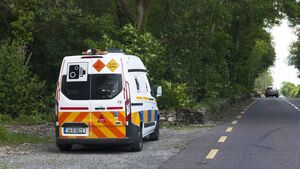Reduction in speed limits is long overdue

With the increase in more sophisticated technology, catching the number of errant and irresponsible drivers now plaguing our roads will increase exponentially.
Last year, a total of 174 people lost their lives on Irish roads, according to statistics published by the Road Safety Authority (RSA). The deaths were the result of 160 fatal collisions across the country. The following item paints a dismal picture, particularly of four counties together representing 45% of the total fatalities: Dublin (23), Cork (19), Mayo (19) and Donegal (17). The figures from Dublin and Cork – two of the most densely populated centres in Ireland – make a certain sense but those from Mayo and Donegal make no sense. Mayo with as many casualties as Cork? And Donegal just two behind?
The jury is still out on why Mayo and Donegal are such accident blackspots. Some point to the condition of certain roads. Others to a culture of speed, noting that an analysis of the figures revealed a high proportion of young (aged 25 years or less) male fatalities. Other suggested reasons were: a failure or incompetence of the appropriate authorities to implement restrictions on speed; the inadequacy of the level of such restrictions; the increasing number of cars on the road; and, most obviously of course, speed.
The latter reason was emphasised in a statement issued by the then Minister of State with responsibility for Transport, James Lawless, who said that the Department was working on making roads safer.
"The work of my Department is focused on making our roads safer for everyone who uses them. In February 2025, the default speed limit on rural local roads will be reduced, following the recommendation of the 2023 Speed Limit Review."
This, he said, will tackle one of the biggest contributory factors to road collisions – speed.
It's late February 2025 now and the changes in speed limits are eventually being rolled out – albeit very slowly. It’s a huge task, of course, changing most if not all of the present speed-control signs, thousands of them. In some places, a new sign representing the new under-60 kilometres limit has appeared with a series of lines on it but nothing as obvious as 60 on it. It has to do, as a motoring expert explained to me, with the old 60 sign allowing drivers to use their own discretion in the past in driving up to but not over 80 km/h but now in areas where the default speed limits have changed from 80km/h to 60km/h, the limit is 60 km/h or below. Yes, I know!
Much of that was new to me but I worry that someone somewhere will decide to over-complicate things unnecessarily and more attention will be given to optics than to clarity. Or to style rather than substance. Or to how others see us rather than on how we need above all else in this new dispensation to regularly and forcibly implement more stringent regulations.
At least no one is or should be in any doubt now about the need to get this right. Generally, I believe it to be true, that Irish motorists are out of control. Subject as we all are to an Irish solution to an Irish problem not to speak of a culture of devising ways of getting around regulations rather than obeying them, we even tend on occasion to conspire in facilitating others to break the rules. For example, anyone who wondered why oncoming motorists are flashing their headlights will soon get used to the warnings that a speed detection van is up ahead. And that you are being invited to break the law (but not get caught) by other well-meaning but irresponsible motorists! Shame on those ‘accessories after the fact’ – legalise for those who assist but don’t participate in the commission of a crime.
A clear indication of the irresponsibility of the Irish motoring public is the Garda statistics from recent crack-downs on speeding motorists. More than 13,570 drivers were detected speeding between the end of November and early January. Over 1,000 drivers were detected for speeding offences during the first four days as part of a Garda operation over a bank holiday weekend.
Among the statistics were the following: a driver travelling at 202km/h in a 100km/h zone in Co Cavan; another travelling at 213km/h in a 100km/h zone in Dublin; a driver travelling 121km/h in a 50km/h zone in Co Tipperary; and another driving at 144km/h in a 60km/h zone in Wexford.
During the same period, Gardaí said that 17 people were killed on the country's roads; there were 85 serious road collisions, which resulted in a number of people receiving serious and life-threatening injuries; 939 people were arrested for driving while under the influence of alcohol or drugs; and around 1,311 fixed-charge notices were issued to drivers for using a phone while driving.
Whatever about new signs or Garda statistics, the main solution to minimising the number of deaths on Irish roads is coming to terms with speed.
My fear is that efforts will be made at different levels to moderate the severity of the latest changes to speed limits or to minimise their implementation.
Last year, 19 people died on Mayo roads and the legacy of that loss extends not just to 19 families but to 19 much wider constituencies in its repercussions.
Thankfully, with the increase in more sophisticated technology, catching the number of errant and irresponsible drivers now plaguing our roads will increase exponentially. It will also focus on a more appropriate division of roles: those charged with catching errant drivers (the white vans) and the Gardaí who need to pursue a much smaller number of irresponsible bullies who imagine that the public road is a race track around which they can speed at leisure in their souped-up BMWs – and for whom speed limits are made to be broken. They need to be found, prosecuted and taken (sometimes permanently) off the road if we are to be serious about road safety.
An increase all around from all responsible for limiting the carnage on our roads – drivers, Gardaí, local authorities, the public – will mean actual lives saved, possibly members of your family or mine. Or maybe even your life or mine.




